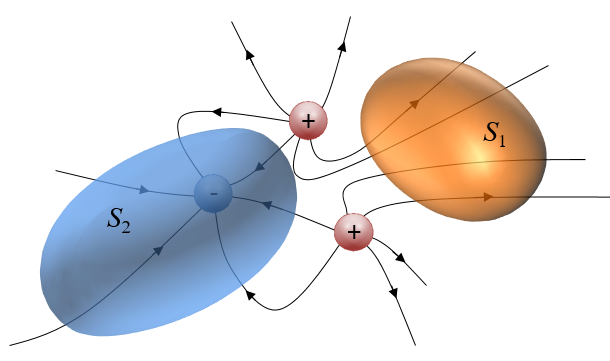The course uses a learning-focused pedagogy with goal-oriented lectures
ED1110 Vector Analysis 4.5 credits

The purpose of the course is to provide an understanding of the basic relations of vector analysis, to demonstrate practical applications of vector analysis and to train the student in problem formalization and in methods of solution.
Information per course offering
Information for Autumn 2026 Start 24 Aug 2026 programme students
- Course location
KTH Campus
- Duration
- 24 Aug 2026 - 23 Oct 2026
- Periods
Autumn 2026: P1 (4.5 hp)
- Pace of study
33%
- Application code
10745
- Form of study
Normal Daytime
- Language of instruction
Swedish
- Course memo
- Course memo is not published
- Number of places
Min: 1
- Target group
- Open for CELTE, CENMI
- Planned modular schedule
- [object Object]
- Schedule
- Schedule is not published
- Part of programme
Degree Programme in Energy and Environment, year 3, SUT
Degree Programme in Energy and Environment, year 3, ITH
Degree Programme in Energy and Environment, year 3, KEM
Degree Programme in Energy and Environment, year 3, MES
Degree Programme in Energy and Environment, year 3, ELP, Mandatory
Degree Programme in Energy and Environment, year 3, MHI
Degree Programme in Energy and Environment, year 3, RENE
Degree Programme in Energy and Environment, year 3, SENS, Mandatory
Degree Programme in Energy and Environment, year 3, SMCS
Degree Programme in Energy and Environment, year 3, HSS
Degree Programme in Energy and Environment, year 3, SUE
Degree Programme in Electrical Engineering, year 2, Mandatory
Contact
Course syllabus as PDF
Please note: all information from the Course syllabus is available on this page in an accessible format.
Course syllabus ED1110 (Autumn 2021–)Content and learning outcomes
Course disposition
Course contents
• basic vector algebra
• differentiation and integration of vector-valued functions in Cartesian, cylindrical and spherical coordinate systems
• the gradient and the directional derivative
• the potential
• line integrals and surface integrals
• Gauss' and Stoke's theorems
• the nabla operator and index notation
• integral theorems
• curvilinear coordinate system
• important vector fields and integration of these
• the equations of Laplace and Poisson.
Intended learning outcomes
After passing the course, the student shall be able to
• apply vector algebra and use the gradient of scalar field to solve elementary problems in physics
• carry out line, surface and volume integration as well as differentiation of scalar and vector fields
• interpret the divergence and the curl physically and apply these operators to carry out surface and line integration by means of Gauss and Stoke's theorems
• identify the most appropriate coordinate system for a given problem and apply the gradient, the divergence and the curl in the selected coordinate system
• use nabla operator and index notation to simplify and carry out vector analysis calculations
• solve Poisson's equation with appropriate boundary conditions for problems with cylindrical and spherical symmetries
in order to obtain understanding of vector analysis relationships, to demonstrate practical applications of vector analysis as well as to provide training in problem formulation and solution methods.
Literature and preparations
Specific prerequisites
Knowledge in one variable calculus, 7.5 higher education credits, equivalent to completed course SF1625.
Active participation in a course offering where the final examination is not yet reported in LADOK is considered equivalent to completion of the course. Registering for a course is counted as active participation. The term 'final examination' encompasses both the regular examination and the first re-examination.
Recommended prerequisites
Vector algebra; addition and subtraction of vectors, scalar product, projection of vectors, cross product.
Basic mathematical analysis in one and multiple variables.
Literature
Examination and completion
Grading scale
Examination
- TENA - Exam, 4.5 credits, grading scale: A, B, C, D, E, FX, F
Based on recommendation from KTH’s coordinator for disabilities, the examiner will decide how to adapt an examination for students with documented disability.
The examiner may apply another examination format when re-examining individual students.
If the course is discontinued, students may request to be examined during the following two academic years.
Continuous examination is used. It consists of home assignments as well as individual assignments and group assignments during class room tutorials. Final, written examination is also given (necessary for higher grades).
Examiner
Ethical approach
- All members of a group are responsible for the group's work.
- In any assessment, every student shall honestly disclose any help received and sources used.
- In an oral assessment, every student shall be able to present and answer questions about the entire assignment and solution.
Further information
Course room in Canvas
Offered by
Main field of study
Education cycle
Supplementary information
In this course, the EECS code of honor applies, see:
http://www.kth.se/en/eecs/utbildning/hederskodex.